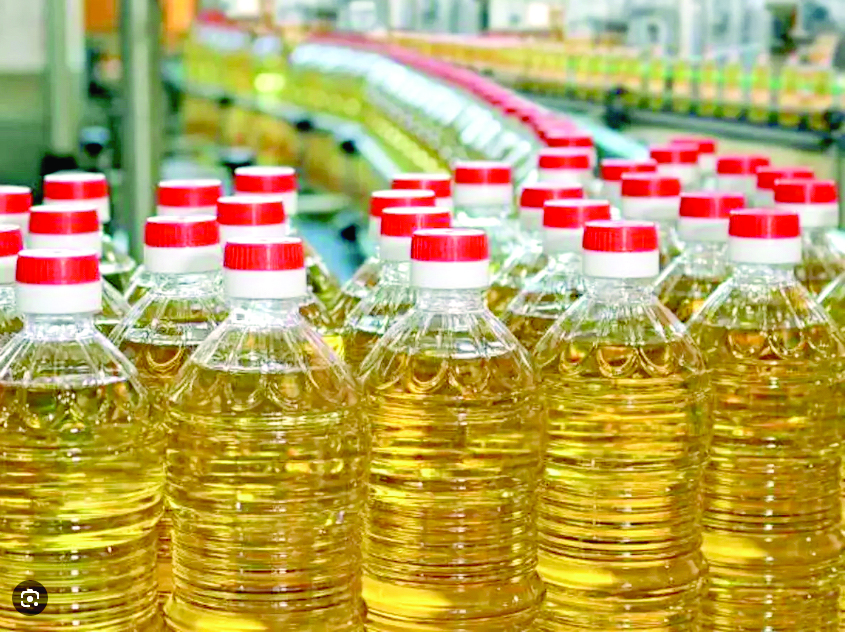Kebs warns condemned oil being sold
By Anthony.Mwangi, March 5, 2024Edible oil at the centre of importation storm last year and declared unfit for human consumption by the Kenya Bureau of Standards (Kebs), is now being sold to manufacturers.
Kenya National Trading Corporation (KNTC) officials told a parliamentary committee that the oil was being sold to manufacturers in the country.
The oil whose quality was queried, was only fit for the production of animal feeds, not for human consumption, according to findings by Kebs.
The State agency later disowned its own report indicating that the consignment was unfit for human consumption clarifying that it met all the health and safety parameters in tests conducted by the agency.
Level parameters
Kebs said the oil was only flagged for failing to meet Vitamin A level parameters, adding: “This is not a health and safety parameter.”
But when he appeared before the Trade, Industry and Cooperatives Committee of the National Assembly, KNTC Acting Managing Director Peter Njoroge told members the agency had discarded the report done by Kebs.
Following the stalemate, the committee directed that fresh tests be carried out by and independent organization.
Committee chairperson James Gakuya told People Daily yesterday the committee settled on the Kenyatta University Laboratory to carry out the tests.
“We opted for the KU laboratories which we thought would not be compromised going by their history in such exercises in the past,” said Gakuya.
He continued, “The findings should be ready by now, the committee will make the findings public as we promised.”
The cooking oil, which was imported from Malaysia ostensibly to address a shortage that had sparked a sharp increase in retail prices, lacked many ingredients to be suitable for human consumption, according to Kebs, which subjected the cargo to Kenya Standardisation Specification for Fortified Edible Oils and Fats.
Cooking oil can be added just like soybean oil or corn oil to rations for added fat and dust control to feed cattle. Pig feed also contains 10 per cent sunflower meal, which has oil.
Required specifications
The Kebs stated that the batch imported from Malaysia did not conform to the required specifications of Vitamin A and insoluble impurities, hence raising questions about its quality and suitability for human consumption.
“For fat content, the oils were far above the required amount by 0.47 per cent by mass — containing 99.97 instead of the mandatory 99.5,” states the report.
In terms of the acidity content, potassium hydroxide in milligrams was 0.12 as opposed to 0.6. The oil contained only 5.42 of peroxide per kilogramme of oil, as opposed to the mandatory 10 required for oxidation. Its moisture was of extremely high volumes. The agency further established that the oil contained 0.04 of insoluble impurities while the required standard is 0.05.
“Going by these findings it was easy to conclude that the oils were only fit for animals,” said a source at the standards agency.
Following the findings, Kebs wrote to the corporation notifying that the consignments had been condemned.
The suppliers were thus asked to ship the consignment back to the point of origin within 30 days from September 5, the date when the letter was signed.
“Failure to comply with the orders will cause the products to be destroyed at the importer’s cost,” warns the letter.
Attempts by senators to inspect the consignment have been blocked by KNTC officials who have on two occasions refused to open the warehouses.
President William Ruto reportedly ordered investigations after realising that the prices he had helped to negotiate with the manufacturer were inflated by at least seven dollars per litre.
The Directorate of Criminal Investigation (DCI) took over the matter only to be stopped after a week when it was taken over by the Ethics and Anti-Corruption Commission.
The Cabinet had approved a framework to position KNTC as the anchor of State initiatives to create a price stabiliser for essential household food items.
KNTC was expected to leverage on its infrastructure and capacity to stabilise price swings of essential items in public interest.
However, KNTC single-sourced the companies contracted to import the 125,000 metric tonnes of edible oil and set higher prices as opposed to what had been agreed on initially during the negotiation stage.
